
The clock struck 3am and David Simmonds was finally heading home from one of the biggest turmoil of the by-election in recent years.
As a jubilant Conservative MP made his way past the media tables to the exit of the Queensmead Sports Centre, he was asked to deliver a verdict. «The people of Uxbridge and South Ruislip said no to Ules and yes to the Conservatives,» he replied cheerfully before storming out of the building.
Simmonds, who represents the neighboring London constituency, now had every reason to rejoice in his chances for re-election next year. Labor's failure to take Boris Johnson's old seat, despite their huge lead in the national polls, has sparked outrage in Westminster and bewilderment in both parties.
We're already starting to see the first results of their introspection, and it could be seismic impact on how the next general election will run.
For Tories, the task is simple. By mobilizing motorists' votes in Uxbridge with impressive results, can they replicate this success nationally? Conservative MPs are already pushing for Rishi Sunak to seize the win by abandoning green schemes and turning the «war on motorists» into a wedge against Labour. Conservative headquarters sent out an internal memorandum to ministers stating that Labor would create «one Ulez in every city.»
On Friday (July 28), despite feverish opposition from five Conservative-led councils in London, a High Court decision allowed Ulez to expand into those areas. It may be a setback, but it plays into the hands of Headquarters and could ignite support among voters as the Tories will find themselves pounding on the open door, given that the current prime minister was once proudly called by the Allies «the world's most active chancellor.» history.
«We need to stop making life difficult for the vast majority of people in the UK who rely on the car as their primary means of transportation,» Sunak said during last year's Tory leadership race. «As Chancellor, I have introduced the largest fuel surcharge cut in a generation, and as Prime Minister, I will go further to end the war on motorists once and for all.»
 Prime Minister Rishi Sunak with newly elected Conservative MP Steve Tuckwell, whose by-election wins in Uxbridge and South Ruislip provided a major boost to the Tories. delaying the proposed 2030 ban on the sale of non-electric vehicles so despised by many of its supporters.
Prime Minister Rishi Sunak with newly elected Conservative MP Steve Tuckwell, whose by-election wins in Uxbridge and South Ruislip provided a major boost to the Tories. delaying the proposed 2030 ban on the sale of non-electric vehicles so despised by many of its supporters.
Publicly, a number of Cabinet ministers have given mixed signals about how much the government remains committed to the plan, which has been the flagship of Boris Johnson's policies. But in #10, his future is now heavily debated, demonstrating how Uxbridge's result is firmly planted in the minds of conservative strategists.
It's well known that Sunak is less ideologically committed to net zero than his predecessor. and, as a rural MP, knows the value of a car to millions of Britons.
He touched on a key message from the Conservatives when, during his first bid for the leadership, he stated: “The UK is a passionate driving nation because driving gives freedom.
The British love of cars began over a century ago and continues to this day: 25.6 million people now rely on their cars to get to work, school and shops, as well as an emotional attachment to cars that transport people. us to important events in our lives, such as family reunions, celebrations and weddings.
2907 car use
For decades, car ownership has been considered desirable, but in recent years the public debate has changed as environmental issues have become more important to voters and politicians. Increasingly, drivers are being made to feel guilty about the environmental impact of cars, especially those choosing larger gas-guzzlers to accommodate their families.
This is partly because much of the national discussion is shaped by people who live and work in London and have very different experiences than the rest of the country. In the capital, 54% of households own at least one car, and most of them live in the suburbs. In the center of Islington, for example, this figure is only one-third.
In addition, the more public transport options there are in the city, those with a car tend to have to use it less frequently and to cover more short distances.
Outside of London, where an average of 77% of households own a car, it's a different story. In some rural areas, such as East Hampshire and Mid-Suffolk, the figure is as high as 90 percent. And while the government is actively encouraging people to use electric vehicles (EVs) through financial incentives, the vast majority of them still run on gasoline or diesel.
2,907 car owners
Of the 33.2 million vehicles registered in the UK at the end of December, only 1.1 million were electric vehicles, according to official figures, although the number is steadily rising. Up 49% year-over-year, production is also picking up, with UK factories turning out a record 243,066 battery or hybrid vehicles last year.
But there are also concerns that the rush to adopt electric motors has led to that too many people were forced to use them before the technology was really ready.
Last month, actor Rowan Atkinson said he was ditching electric cars, saying he feels «cheated» by claiming they are eco-friendly and urging others to leave their old gas cars behind. suitable for drivers who live in the countryside or are regularly forced to travel long distances.
This comes as Brits are getting mixed messages about whether the authorities even want them to own a car at all.< /p>
While the government is busy trying to encourage drivers to use electric vehicles, both Conservative and Labor-led councils are pursuing policies to drastically reduce their use.
This includes the spread of policies originating in London such as low traffic areas (LTN), clean air zones, and general 20 mph speed limits for other cities.
LTNs are expected to improve safety and improve air quality. quality for residents, but critics have long said they're just increasing congestion and hitting businesses that rely on drive-by trade — and it's now clear that some of the local authorities who implemented the schemes are starting to regret it, and some have even removed them after voter backlash.
The Tories first introduced the LTN in Oxford when they controlled the city, but the opposition now opposes the creation of any new ones, saying they 'didn't work'. Meanwhile, the Labor-run Warrington City Council announced last month that it was removing the LTN number because «it's not popular with many residents.»
Then there are the Clean Air Zones, which, like Ulez's controversial London policy, involve drivers of older cars emitting higher emissions who charge fees to enter cities. They were presented by nine cities and metropolitan areas outside the capital, including Bath, Birmingham, Bradford, Bristol, Portsmouth, Sheffield and Tyneside. Perhaps the most famous example is Greater Manchester, where a proposed scheme that drew backlash against Labor Mayor Andy Burnham has been put on hold.
2,907 Low Emission Zones in the UK
Senior Tories see an opportunity for the party to seize on the growing unrest among motorists and draw a clear dividing line between him and Sir Keir Starmer ahead of the next election.
Sir Jacob Rees-Mogg, a former business secretary, says the Conservatives have «not supported motorists» since 2010, but believes that will change under Sunak. “It's really strange that the Conservatives, partly because we succumbed to the green agenda, agreed with the anti-car approach that came with New Labour,” he says. “LTN actually came into being under the Tories, they were fundamentally not conservative and should be gotten rid of. We should not consider motorists as an easy source of money.
“We need to build more roads, support motorists, get rid of bottlenecks, ease traffic and recognize the liberating nature of cars.”
Conservative MPs are actively lobbying for changes to Downing Street. of course, including by lifting the ban on petrol and diesel cars by 2030 and investing in alternatives to electric vehicles. Greg Smith, a member of the House of Commons Transportation Committee, said the party could win back rural voters given that for many, road transport is a cost-of-living issue.
“I have been arguing for some time and will continue to argue that we have to do something as a party of government to make a strong case that we are on the side of people who are just trying to live their daily lives and for the vast majority of them their car is essential for this,” he says.
“Most people who want Ulezes, LTNs and 15-minute cities just don't like the idea that people have private transportation. They are just against cars. You can make the cleanest car in the world and they'll still be against it.
“No car means no life in rural Britain. This is an ideological crusade, and we, as a party and government, must plant our flag firmly on the side of the villagers who need their cars in the run-up to the next general election.”
He is pushing for ministers to put more emphasis on developing synthetic fuels that could be used in gasoline and diesel vehicles to provide zero-carbon vehicles. But they don't currently comply with the 2030 ban rules, which say there must be no emissions from a vehicle's tailpipe for it to be excluded.
Smith said the rule means the government has committed » a huge mistake» by putting all your eggs in a battery-powered basket, despite problems with technology and a lack of charging infrastructure.
Craig McEnlay, chairman of the Net Zero Scrutiny Group, a group of 50 Conservative MPs, urged the prime minister to lift the «siege» on Britain's 35 million drivers, saying: «The private car is probably the most liberating invention.» that has ever been created, and we must recognize it as the party of freedom and choice.
“However, we have high diesel and gasoline prices and high tax rates compared to the rest of the world. It's a huge voting body of people that the conservatives can now bring to our cause. We need to show that we think about them and are completely different from what Labor could offer them, which would be more Ulez, more LTN and less freedom.”
He adds that the by-election in Uxbridge were «the first time the electorate has analyzed some of the real costs of zero and similar proposals. We must learn from this.”
He also said that his personal conversations with ministers did not convince him that many of them really believed in the government's policy on net zero income and cars. “When I talk to ministers, they're working with this hymnal and don't quite understand where it came from,” he said. “You get the feeling that they themselves are not very keen on it – it’s like a legacy text of the Bible,” Susan Hall, the Tory candidate for mayor of London, told voters in the capital. were outraged by Sadiq Khan's refusal to listen to their concerns about Ulez and LTN.
“I’m already hearing loud and clear that they don’t need these 20 mph zones, they don’t need LTNs, and they certainly don’t want the Ulez expansion,” she said. “If you saw some of my emails, you would cry because some of the stories are absolutely devastating. People are losing business, people don't know how they will get to work, other people will have to quit their jobs.» She added that Labor's track record in the capital and fears that the party would repeat Khan's policies elsewhere could prove to be a powerful campaign tool for her own party in the next election (opinion should be boosted by Friday's Olez expansion ruling).
Ulez Extension
«If Labor gets involved, they'll put these Ulez things all over the place,» she warned. “We can imagine that they will do whatever they want. They will be like Sadiq Khan — they will not listen to what anyone says. It's all about «we know best», and you know, politicians don't always know best.»
Recent opinion polls indicate that decisive action is being taken to change the situation. Motorists could pay dividends to the Prime Minister as he seeks to reverse the fate of the Tories.
A poll released by YouGov after the Uxbridge by-election found that more than half of Britons now oppose a clean air charge in their area. The number who say they oppose such schemes has risen 9 percent over the past two years to include more than seven out of ten who voted Conservative in 2019. area, with even four in ten Labor supporters saying it would be a bad idea.
The road to a by-election
A separate poll earlier this month found that 53% of Britons disagreed with the 2030 ban , with nearly half concerned about its economic implications.
This survey also showed reluctance towards electric vehicles: only 29% said they would feel confident buying an electric car as their only vehicle, based on the existing infrastructure.
However, at the same time, the value that voters attribute to the environment has risen significantly, showing that it would be dangerous to completely abandon pure zero.
YouGov began tracking British attitudes to key issues in 2011. Back then, the government's then green space policy was a priority for 8 percent of voters. Fast forward a decade and the figure is now 29%, making climate change the fourth most important topic after immigration, health and the economy.
Fintan Smith, head of policy research at the poll, said that people's attitude towards certain politicians, such as Ulez, is determined by their personal circumstances.
“The nuance is that actually a lot of this has to do with the fact that people are just not as well served by public transport in some areas,” he said. «In London, people support this kind of thing because you have buses and tubes, and if you live in the countryside, it's just not practical.»
In the corridors of power, ministers are beginning to cling to the fact that the war on motorists could be an important new avenue for attacking Labor. Mark Harper, transport minister, released a letter to Sir Keir on Thursday accusing the Labor leader of «turning things around» on the Ulez issue.
Sadiq Khan's High Court victory over the five Soviets, trying to block the expansion could make Sir Keir's life even more difficult. The Labor leader initially supported expanding the low-emission zone to all of Greater London, but has since appeared to back away from that support.
Rachel Reeves, his shadow chancellor, said this week that «with the cost of living in mind, now is not the time to hit people with extra expenses.»
Her remarks show Ulez getting sicker and sicker with the party's broader message about a net zero that was meant to highlight potential consumer savings and job creation policies rather than focusing on their environmental impact.
But conservative strategists know it will be difficult for Sir Keir to draw a clear line in the minds of voters between themselves and Khan, who is one of the most famous Labor politicians.
2907 Popularity in the UK
In recent weeks, the elder Tories have stepped up their attacks on the opposition over Ulez, the LTN and Khan's plans to introduce fares in the capital. The party has already had some success in attacking Labor for receiving donations from Dale Vince, a multimillionaire backer of the subversive protest group Just Stop Oil.
And in addition to the «Get Out in Every Town» line of attack, ministers also plan to take advantage of Labor's record in Wales, where First Minister Mark Drakeford has banned new roads and is imposing a 20 mph speed limit.
< p> «As Conservatives, we we want to give people more choice in how they travel by supporting motorists rather than preventing people from driving,” a Whitehall source said. “Labour, by contrast, seems obsessed with pursuing an ideological crusade against motorists wherever they are in power.
“It’s quite revealing when you look at the places where Labor is in control, from Wales to London to local LTN of advice, it gives you an idea of the anti-motorist measures they would like to have in government.
“We are pro-motorists throughout government, and Labor clearly is not – and if you look at us and they have a very clear division.”
With his party trailing Labor in the polls, Rishi Sunak has a long way to go to power. Increasingly, it seems that the Prime Minister will have to travel by car.



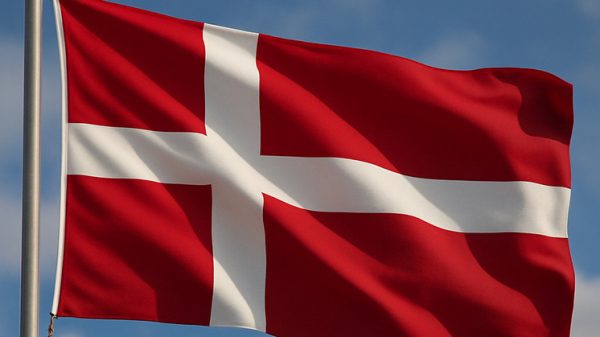











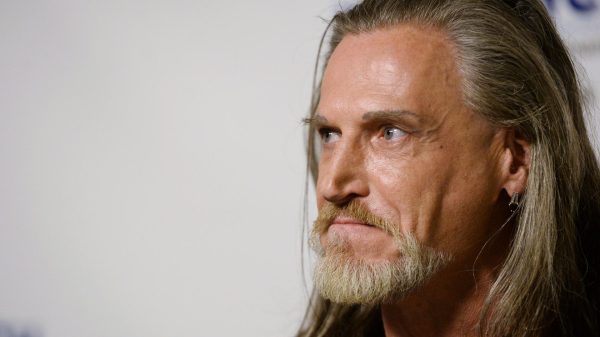

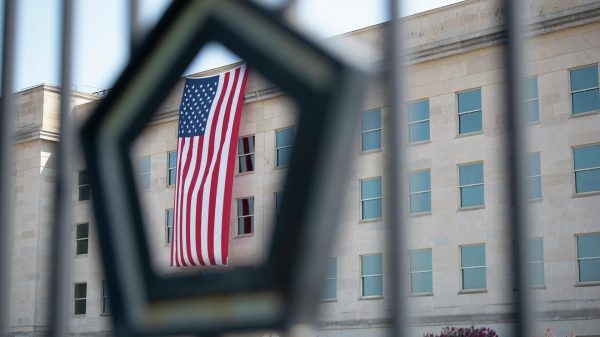









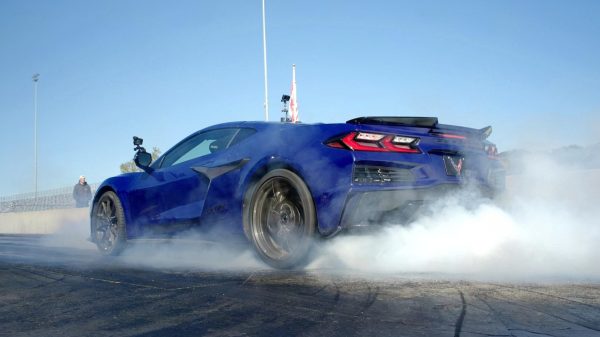

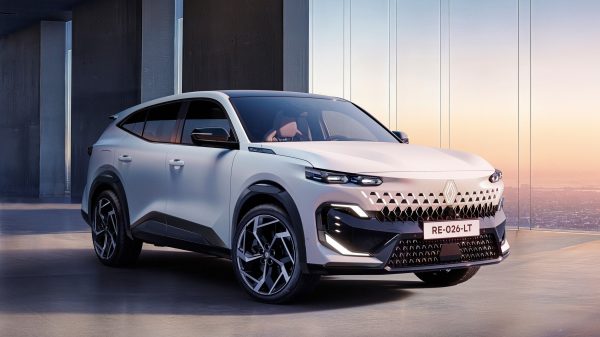
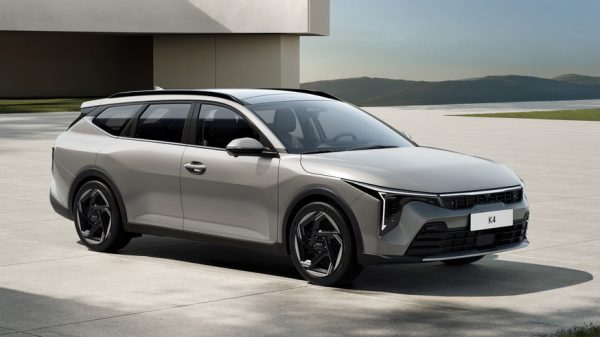



























Свежие комментарии